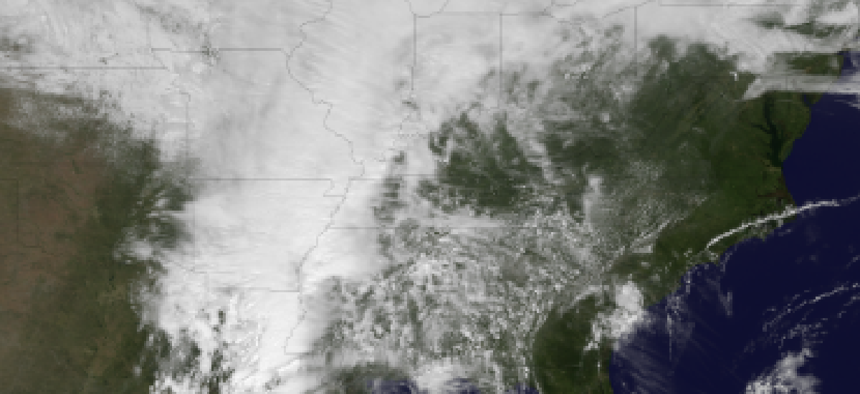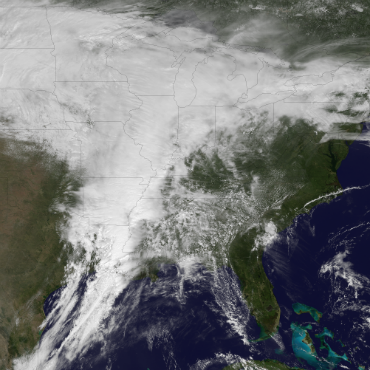Readers rankled over NOAA satellites

Should NOAA continue to manage satellite programs? Some readers are dubious.

NOAA satellite data provides essential information for tracking storms and forecasting weather. (NOAA image)
Readers were critical of the National Oceanic and Atmospheric Administration's management of two major weather satellite acquisitions following a Sept. 19 article.
One reader wrote: NOAA has clearly proven with this debacle that they should never have been permitted to manage a satellite program in the first place. All satellites should be under NASA's jurisdiction and the incompetent and redundant NOAA satellite program should be shut down.
And another commented: NOAA has a problem with priorities! Let's get the priests of global warming out of the organization and get back on track with the real important issues... like weather satellites!
Frank Konkel responds:
While NOAA received the lion's share of criticism at a Sept. 19 congressional hearing, don't forget that NASA already partners with NOAA on both the Joint Polar-orbiting Satellite System and the Geostationary Operational Environmental Satellite (GOES-R) program. Combined, the lifecycle costs of both satellite programs are more than $22 billion, and they have experienced delays, cost overruns and ugly oversight reports. In the early- and mid-2000s, a joint NASA-NOAA-Defense Department satellite program wasted billions of dollars on similar types of satellite programs.
The general responsibilities now go like this: NOAA handles the procurement and NASA provides expertise when applicable. NASA launches the satellite and oversees its transition to a fully operational satellite, then NOAA takes over its operations.
These satellites aren't orbiting around the Earth doing nothing. They're making key measurements on weather phenomena of all kinds, providing data to help forecasters make predictions, including tracking dangerous storms and warning people in danger. Data from these satellites is infused into weather data models and forecasters from the National Weather Service – a component agency within NOAA, which in itself is a component of the Commerce Department – and the folks at NWS use the models to make the forecasts that affect every American.
"Shutting down" NOAA's satellite program would require an enormous transfer of information, personnel and logistics information to NASA that no doubt would come with a massive price tag. It might not even be safe, considering NOAA's historical hold on operating weather forecasts. While NOAA's faults are clear – they haven't exactly been transparent with lawmakers or the public on these matters – they provide a vital service to the country. If you value weather prediction or storm tracking, you have NOAA and its satellite programs to thank.
In addition, while NOAA does spend money on climate research, the presence of any "priests of global warming" at the agency is for the most part irrelevant to the debate over the weather satellites. Climate research has at times been a contentious issue in Congress, but the debate at hand has to do with the acquisition of two satellite programs, and has nothing to do with climate research that looks largely at information that's already been documented.
NEXT STORY: OMB updates financial reporting rules



